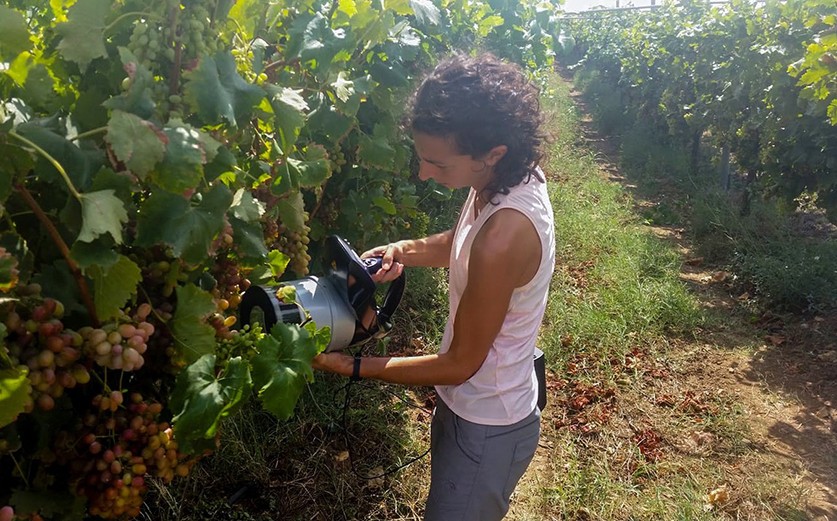Thessaloniki, Greece – The table grape groups from the “Small Farm Adoption” project at the American Farm School (AFS), a part of the “New Agriculture for a New Generation” (NANG) program, have been recognized by the EU for their outstanding achievements. They were chosen by the European Commission’s Smart Specialisation Platform as an implementation point, to show other member states how to grow grapes using smart technologies and to create a protocol for the next decade.
The groups are creating an integrated system that will precisely monitor the cultivation, harvest, processing, and shipping of table grapes so that farmers and buyers will know as much as possible about their crop. “We use sensors to monitor and record all measurable data on the vines during the growing season. We use meteorological stations to predict weather conditions, pests, and diseases; soil analysis to control the soil substrate and nutrients needed for the next period; photonic technologies to monitor chlorophyll and nutrients in the leaves and the health and sweetness of the grapes without destroying the berries," said Ilias Kalfas, project manager. "We are now moving on a storage and transport monitoring system from the fields to the final buyer (truckload sensors, low radiation antennas). We want the buyer to be able to see exactly how the grapes are grown, and at the same time, know the farmer's name and see his face. If buyers trust you, they will trade with you. I believe that in two or three years, all major supermarket chains will demand this level of precision and traceability."
The project encourages the farmers to collaborate and has already created two officially recognized farmers’ groups in table grapes. “The groups create a common company and merge their activities,” Ilias said. “They produce and sell all their crops together, issue invoices, share the profits and the damages. This helps to raise the quality of the product because if you have one bad farmer, they all share the damages.” Working together helps the groups win EU grants for facilities and product promotion. They also share investment costs and can attract larger customers. “If you are not a team, you don’t have power because you won’t be able to deliver the quantities that the markets need,” said George Papadopoulos, a project mentor who grows Crimson Seedless grapes in Kilkis. “I have a contract with a huge company from the UK called Jupiter. They want a truck of grapes per day, 25 tons. In order to deliver this quantity, I need 4000 stremmata (400 hectares). We prefer to have young farmers on these teams because they are open to learning. They see the results from the first year, and they’re willing to grow with us.”
“The table grape sector is a very promising sector that has been neglected in previous decades. The winemaking industry is more or less vertical, but table grapes offer more profit, and we think the sector will get bigger and bigger in the coming years,” Ilias said. “With only 20 stremmata (2 hectares) of table grapes, you can earn 30.000 euros profit,” George said. “What other industry in Greece can provide you with a profit like that?”
The project also seeks to uplift Greece’s rural communities. “With the help of the program, many of the farmers have formed committed relationships that will last for decades,” Ilias said. “The beneficiaries’ success will have a positive effect on those around them, and we hope that they will share their knowledge with future generations.” For example, Giorgos Papanastasiou is an agronomist who collaborates with AFS. He’s a scientist, but he’s also a farmer. No matter how many degrees Giorgos acquires, he will still be the young boy they knew from the village. That’s why we try to collaborate with people from the different regions we’re visiting. We’re trying to leave people behind, to create local supporters.”

